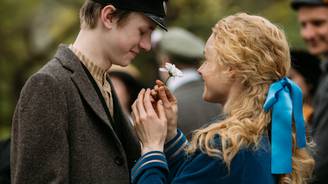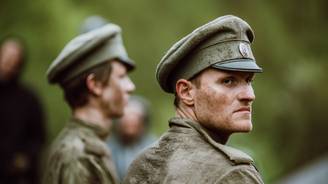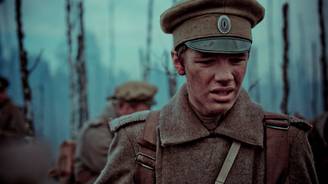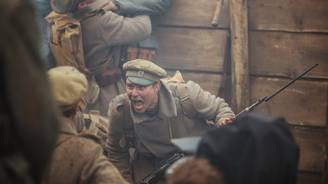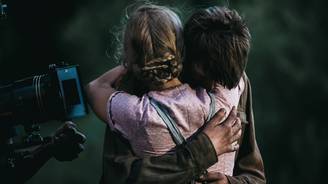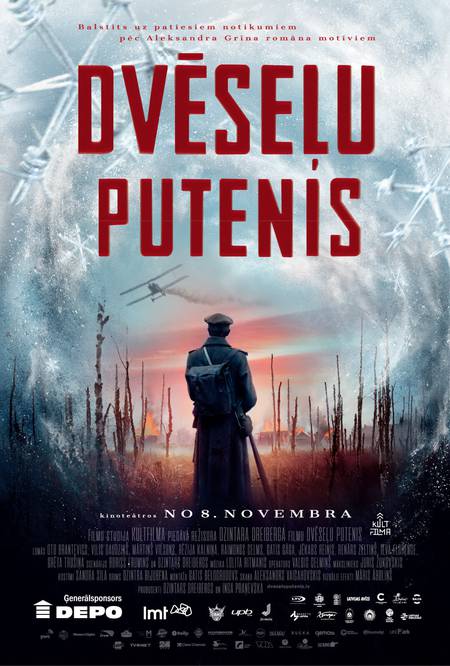
Adapted from by Aleksandrs Grins’s book The Rifleman: Blizzard of Souls, The Rifleman follows the story of 17-year-old Arturs (Oto Brantevics), a farm boy who finds his life turned inside out at the dawn of the first world war. Witnessing his mother murdered before his eyes, Arturs enlists in the Latvian Rifleman Battalion along with his older brother Edgars (Raimonds Celms) and father (Martins Vilsons), a former Commander and marksman with 15 years’ prior military service. Together, the family pass through the relative comfort and enjoyment of training and are thrust into the testing perils of war. Through frozen terrains and mud-caked trenches, Arturs must learn the art of camaraderie whilst also enduring an endless test for survival.
The Rifleman is an honest yet frenzied interpretation of the veracity of warfare, with utterly breathtaking cinematography, reminiscent of the brilliance of Band of Brothers, inferior to only a few. As trees explode and bodies fly, the earth shakes beneath your feet as Arturs’s reality descends into chaos and the pains of war shave layer after layer from his mental state and physical appearance. What is shown is quite unbelievable, with events so incomprehensible in the modern day that one is left shaken to the core to even consider that what is on screen was in fact lived by hundreds of thousands in the first world war.
The savagery, the brutality and the emotionally numb approach to death are all displayed incredibly by director Dzintars Dreibergs and cinematographer Valdis Celmins who, when partnered with Lolita Ritmanis’s epic score, build this motion picture into the behemoth adaptation that it is. The acting, too, is raw and exceptionally emotional, with the script using dialogue when necessary, but not carrying the film with on-the-nose tête-à-têtes, instead embracing visual storytelling and the talents of the cast to show the changing of the times. As the young, endearing lead, Brantevics is extraordinary, fully delivering on the various values and traits of naivety, pride, vulnerability and innocent misunderstanding that such a young fighter might have on the battlefield as he drives his bayonet into the belly of an enemy, simply because his superior ordered him to. Special mention must also go to Celms and Vilsons, who bring a sense of family support and unity to the tale even during the darkest moments of conflict, shedding beautiful moments of heart and joy over dark and desolate wastelands.
It could be argued that the film is slightly rushed in the first act, with Artur given little time to mourn the loss of his mother before he enters the military, but in times of war there is no peace, with moments of reflection whisked away from you without a moment’s hesitation. It is true that there isn’t a minute’s respite throughout the film’s 104-minute run time, something that a viewer can be both grateful and ungrateful for. The harsh reality presented on screen can be wearing, but at the end of the day that is what we sign up for when settling in to watch The Rifleman. Rest assured, it ultimately will not lead to disappointment.”
The Rifleman is a patriotic movie and will slide nicely into the collections of genre fans, particularly those from Latvia itself. It is reported that during the first five weeks of its screening run in Latvia, The Rifleman was seen by more than 200,000 eager cinemagoers, making it the most-watched film in the country’s industry since the restoration of Latvian independence in 1991. Was director Dreibergs’s aim to target this specific audience? Perhaps, but beyond the borders, this film will no doubt be a hit.
